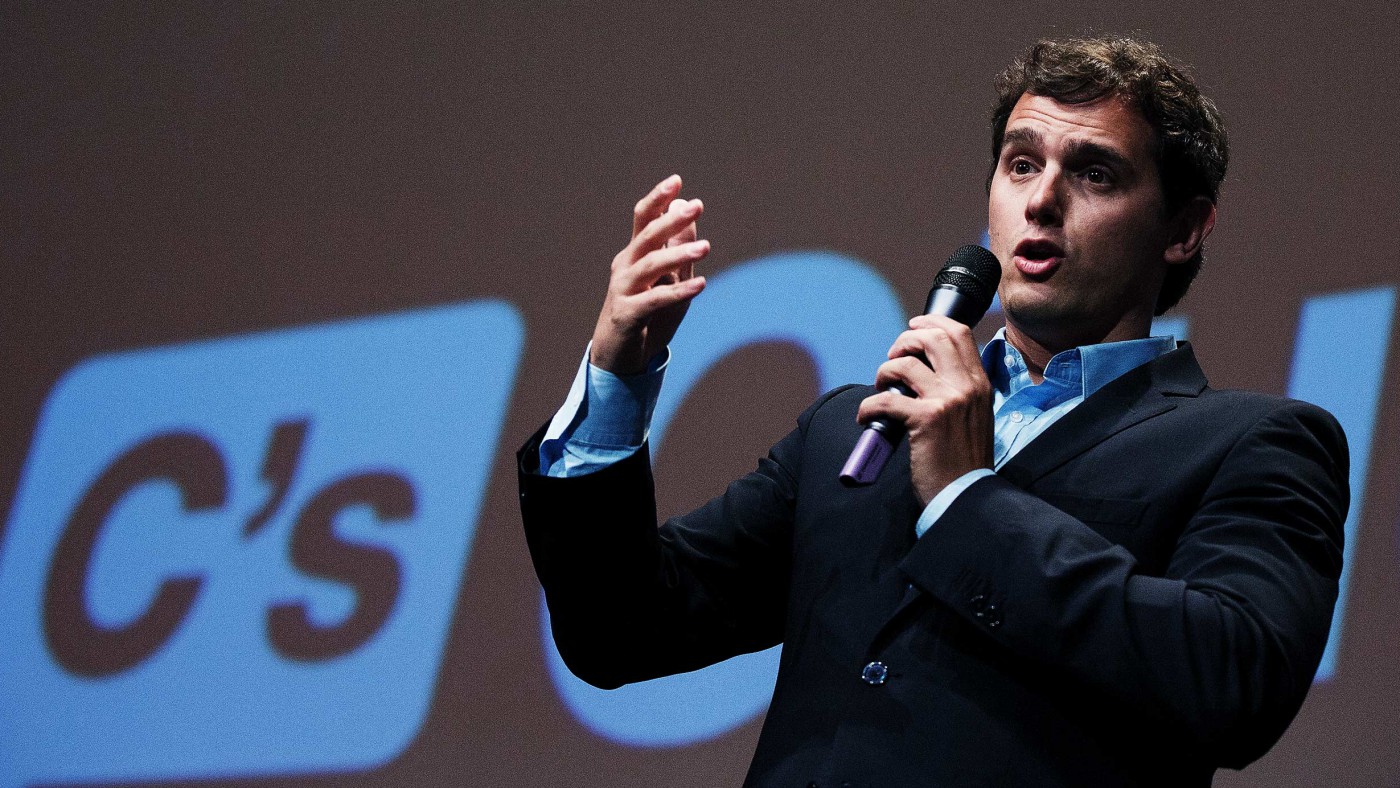What’s going on with Spain’s political landscape? The old two-party system is struggling, with voters feeling frustrated and disillusioned by both the Socialists and the centre-right Populist Party. Last year, the anti-establishment far-left Marxist party Podemos (“We Can”) began making headway, and reached 28% in opinion polls earlier this year. Podemos is (or at least was) considered the Spanish sister-party to Greece’s Syriza, and Spain’s mainstream politicians are terrified.
But there is another grass-roots party gaining momentum: Ciudadanos (“Citizens”), a Catalan party founded to oppose the region’s independence movement. And its leader, Albert Rivera, is proving just as politically captivating as Podemos star Pablo Iglesias. Mats Persson at Open Europe writes:
“In another sign of just how fluid Spanish politics is, a more centrist party has absolutely exploded onto the scene. Ciudadanos was founded as a pro-unionist Catalan party in 2006, and it decided to go national last year. It is now polling at close to 20%. The party’s youthful leader Albert Rivera has become the new darling of Spanish media. Ciudadanos cleverly combines leftist policies on welfare with some pro-business language. Above all, it presents itself as strongly anti-corruption but also as the “safe change” – in stark contrast to Podemos. Although Rivera and Iglesias fish in somewhat different ponds, there’s a lot of competition for centrist voters tired of the traditional parties and the corruption, and they may prefer a centrist over an ex-Marxist.”
Is it possible for an insurgent party to gain support by seeking centrist ground? In Europe, the rising minority parties have all be extremist – as well as Podemos, there is UKIP and the Greens in the UK, the National Front in France, Pegida in Germany, Golden Dawn and of course Syriza in Greece. In contrast, the Ciudadanos stance is one of radical common sense. Tobias Buck writes in the Financial Times:
“Mr Rivera is hoping to capture the changing mood by appealing to voters’ heads, not hearts. The party has released a battery of detailed reform proposals, with a particular emphasis on the tax system and the labour market. The Ciudadanos programme, developed by a team that includes Luis Garicano from the London School of Economics, reflects the party’s liberal economic stance: it calls for a sharp reduction in income and corporate tax, but seeks to balance the cuts by eliminating tax loopholes and deductions.”
Whatever the political incumbents may hope for, Spain is now a four-party country, and the next election, predicted for this Autumn, will be crucial for determining the future of its political scene. With the electorate feeling let down by the two main parties, and support for Podemos waning, Rivera’s extreme reasonableness will be very appealing. Spain’s economic future may depend on voters choosing between this and the emotion whipped up by Podemos.
And what does Rivera himself think about his far-left rivals?
“Podemos channels people’s anger — and people are very angry. But I think what is happening now is that people are saying: OK, I am angry, but now let’s get to work.”
Rachel Cunliffe is Deputy Editor of CapX.
This article is an exclusive for CapX, and is available for syndication. Please contact [email protected] to discuss details.


